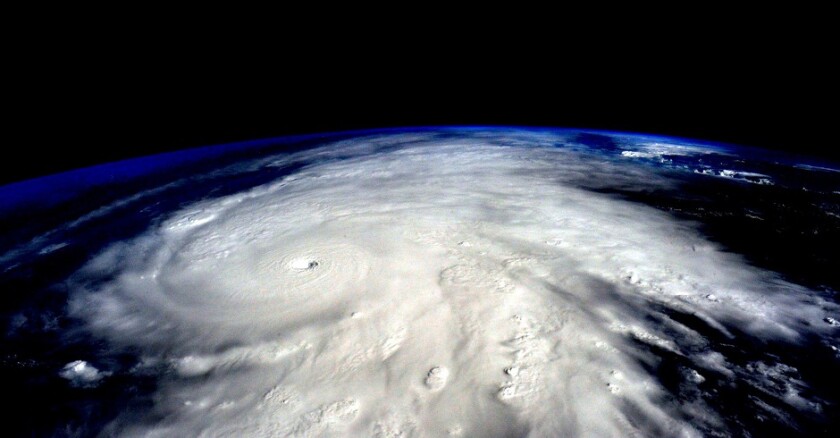The annual event brings together regional emergency managers, first responders, health care representatives and other emergency "partners" to network and learn what's new in preparing for and responding to tropical weather.
"Learn something and share something," CEMA Director Dennis Jones told them in his opening remarks.
Hurricane season runs from June 1 to Dec. 1 and while the forecasters at Colorado State University's Tropical Meteorology Project are predicting slightly below average activity this year, with 13 named storms, they caution "As is the case with all hurricane seasons, coastal residents are reminded that it only takes one hurricane making landfall to make it an active season for them."
Attending for the first time and also providing opening remarks was U.S. Rep. Buddy Carter who congratulated Chatham County for being among the first in the country to be designated last year as a "hurricane strong" community by the nonprofit Federal Alliance for Safe Homes. Carter also mentioned his recent appointment to the U.S. House Select Committee on the Climate Crisis.
"That's very important to me because we know that the climate is changing," Carter said. "Climate change is real. The climate has been changing since day one. We know that protecting our environment is real. We know that our hurricanes have been increasing in numbers and increasing in intensity. We have to be prepared for that. And you know when we talk about how we're going to deal with climate change in the future there are two things that are very important. First of all there's mitigation. Secondly there's adaptation. We've got to be able to adapt to it. We've got to be prepared. We've got to be able to mitigate the effect of these storms."
Workshops covered dozens of issues from a new sea level sensor project that aims to assist CEMA in predicting and responding to flood waters to an update on how Chatham County will handle re-entry after an evacuation. New this year were a panel and workshop aimed at tapping into faith-based resources in the community.
Kevin Smith, director of the Department of Homeland Security Center for Faith and Opportunity Initiatives, told the conference-goers that doing so can help the community recover. In New Bern, N.C., in the wake of Hurricane Florence last year, he saw faith-based communities in action at Temple Baptist Church. The church paired its trained volunteers with walk-ups to tarp roofs and clear downed trees. With 600 volunteers working 10-hour days for two weeks, Smith estimated their value to the local emergency management at at least $860,000.
"That's a lot of money, and that's just one house of worship in the New Bern area," he said, noting there are 344,000 houses of worship across the country.
"And each one of them has as a tenet of their faith to serve others," he said. "The question to you as emergency managers is are you engaging those faith communities? Are you seeing that as a cash value and a return on an investment not just as do-gooder faith-based community out there helping people? Because there's a role for you to help them lead and also a role for you to help maximize that value of service and use that to help your community recover."
———
©2019 Savannah Morning News (Savannah, Ga.)
Visit the Savannah Morning News (Savannah, Ga.) at savannahnow.com
Distributed by Tribune Content Agency, LLC.








